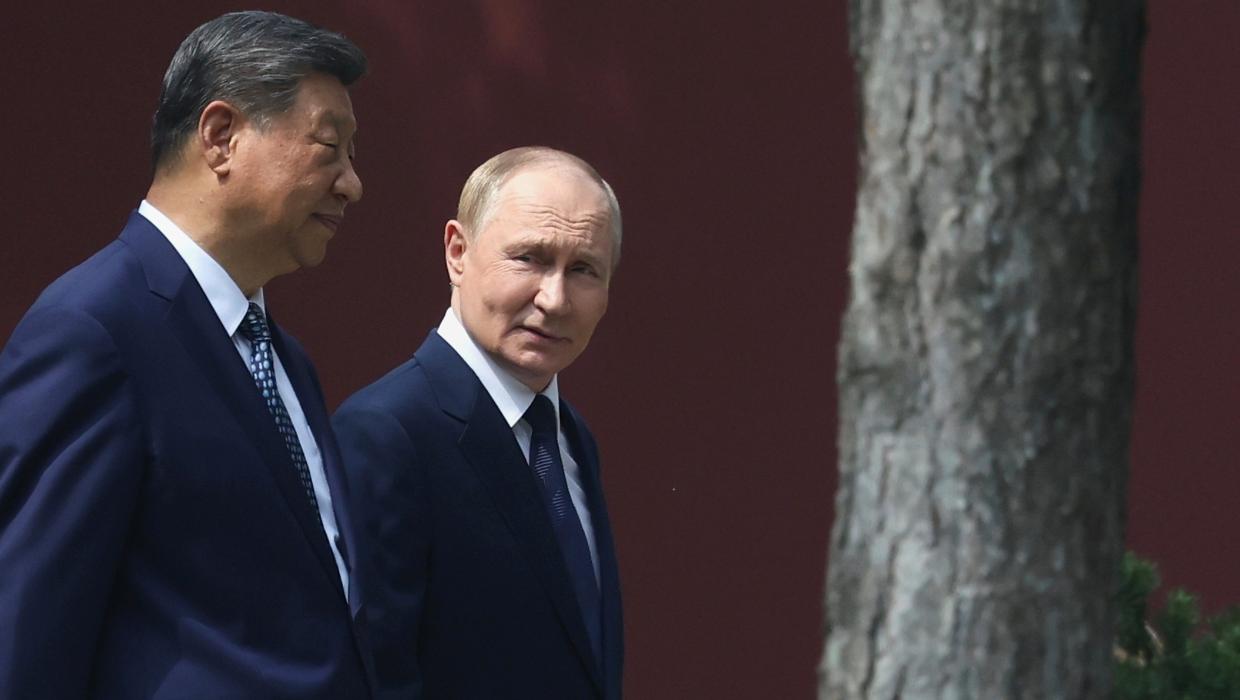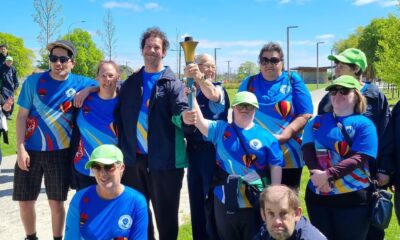Science
Putin’s Hot Mic Suggests Ambitions for Lifespan Extension

A recent incident involving a hot microphone has hinted at Russian President Vladimir Putin‘s ambitions for extending human lifespan through advanced science. During a discussion with other global leaders, Putin expressed interest in the potential of healthcare technologies that could significantly prolong life. This revelation raises questions about the future of human longevity, particularly among those in power with access to vast resources.
The conversation occurred on October 12, 2023, during a summit where leaders explored various global challenges. While the specifics of Putin’s comments remained private initially, the accidental broadcast has sparked renewed interest in the implications of lifespan extension research. Prominent scientists have long debated the feasibility and ethical dimensions of extending human life, but the focus is now shifting toward the resources available to those who could make it a reality.
Scientific Potential and Global Competition
As nations compete to lead in groundbreaking healthcare innovations, the potential for significant advancements in longevity science seems promising. The scientific community is making strides in fields such as biogerontology, which studies the biological processes of aging. Researchers are exploring various approaches, including genetic modifications, regenerative medicine, and advanced pharmaceuticals aimed at combating age-related diseases.
Countries like the United States, China, and Russia are investing heavily in these areas. With substantial funding from both public and private sectors, there is a race to unlock the secrets of aging. For instance, the U.S. National Institute on Aging allocated over $3 billion in research funding in 2022 alone, focusing on age-related health issues. Such investments highlight the growing recognition of longevity science as a vital frontier.
The potential outcomes of successful lifespan extension could reshape society. If leaders like Putin were to harness these technologies effectively, it might lead to a future where the wealthy elite could enjoy significantly longer lives. This prospect raises ethical questions about equality in healthcare access and the societal implications of drastically increased lifespans.
The Path Ahead
While the conversation surrounding lifespan extension remains largely speculative, it is grounded in scientific inquiry and emerging technologies. According to experts, achieving significant breakthroughs could take years or even decades. Dr. David Sinclair, a prominent researcher at Harvard Medical School, has pointed out that while the science is advancing, practical applications for widespread use are still in development.
The dialogue initiated by Putin underscores a broader trend among global leaders who are increasingly aware of the potential benefits of longevity research. As resources flow into this field, it is essential to consider not only the scientific possibilities but also the ethical ramifications. Who will benefit from these advancements? How will societies adapt to longer lifespans?
In conclusion, the implications of Putin’s comments extend far beyond a casual conversation. They signal a growing interest in the potential for human lifespan extension, driven by scientific innovation and competitive ambition. As research continues to evolve, the world watches closely to see how these developments will unfold, shaping the future of health and longevity.
-

 World2 weeks ago
World2 weeks agoPrivate Funeral Held for Dean Field and His Three Children
-

 Top Stories3 weeks ago
Top Stories3 weeks agoFuneral Planned for Field Siblings After Tragic House Fire
-

 Sports3 months ago
Sports3 months agoNetball New Zealand Stands Down Dame Noeline Taurua for Series
-

 Entertainment3 months ago
Entertainment3 months agoTributes Pour In for Lachlan Rofe, Reality Star, Dead at 47
-

 Entertainment2 months ago
Entertainment2 months agoNew ‘Maverick’ Chaser Joins Beat the Chasers Season Finale
-

 Sports3 months ago
Sports3 months agoSilver Ferns Legend Laura Langman Criticizes Team’s Attitude
-

 Sports1 month ago
Sports1 month agoEli Katoa Rushed to Hospital After Sideline Incident During Match
-

 World3 weeks ago
World3 weeks agoInvestigation Underway in Tragic Sanson House Fire Involving Family
-

 Politics2 months ago
Politics2 months agoNetball NZ Calls for Respect Amid Dame Taurua’s Standoff
-

 Top Stories3 weeks ago
Top Stories3 weeks agoShock and Grief Follow Tragic Family Deaths in New Zealand
-

 Entertainment4 months ago
Entertainment4 months agoKhloe Kardashian Embraces Innovative Stem Cell Therapy in Mexico
-

 World4 months ago
World4 months agoPolice Arrest Multiple Individuals During Funeral for Zain Taikato-Fox





















